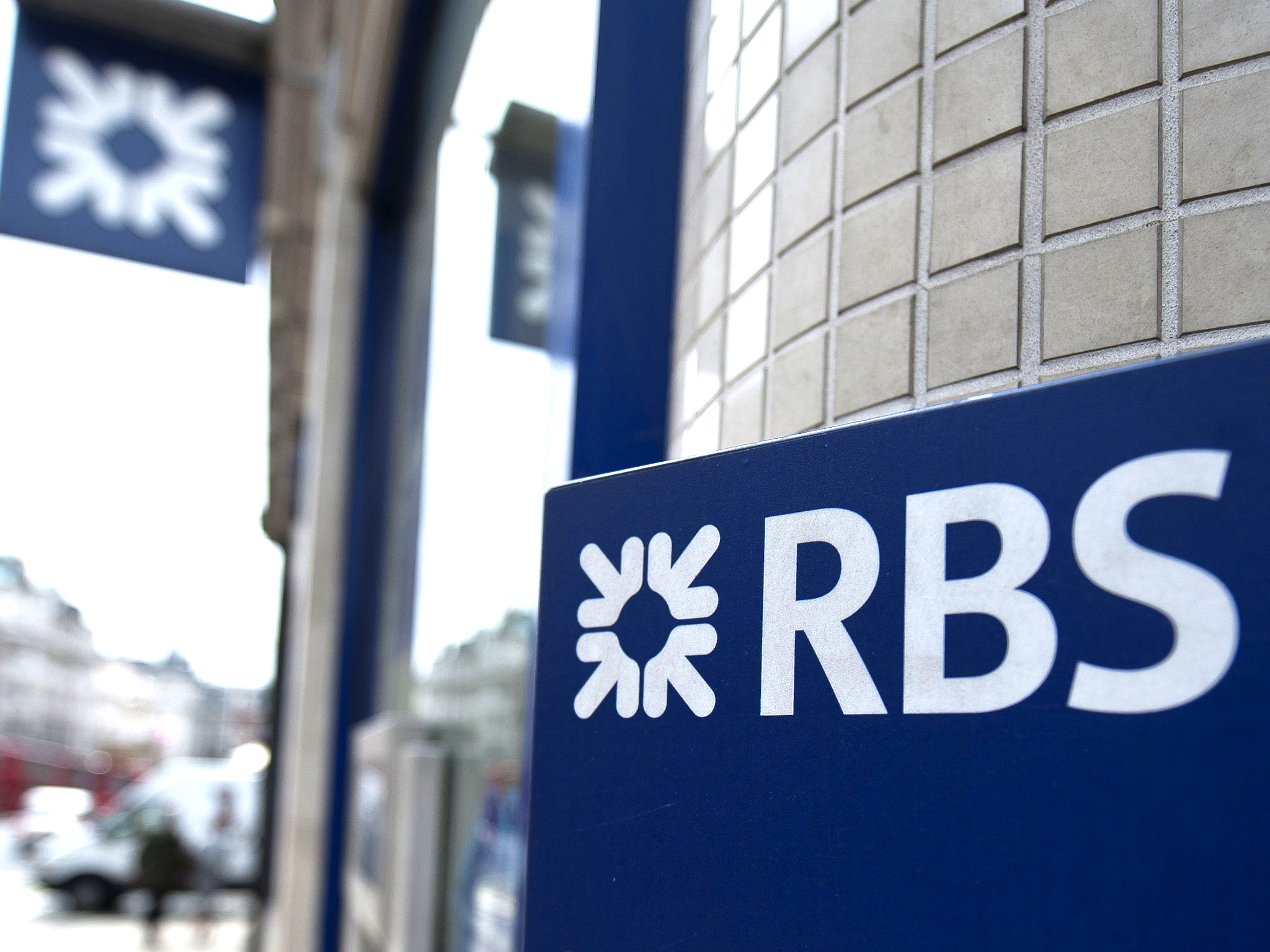Royal Bank of Scotland: Can it fall any further after Santander sale fail?
The shares’ reaction to the latest disaster suggests that the market is now all but immune to bad news from the bank

Your support helps us to tell the story
From reproductive rights to climate change to Big Tech, The Independent is on the ground when the story is developing. Whether it's investigating the financials of Elon Musk's pro-Trump PAC or producing our latest documentary, 'The A Word', which shines a light on the American women fighting for reproductive rights, we know how important it is to parse out the facts from the messaging.
At such a critical moment in US history, we need reporters on the ground. Your donation allows us to keep sending journalists to speak to both sides of the story.
The Independent is trusted by Americans across the entire political spectrum. And unlike many other quality news outlets, we choose not to lock Americans out of our reporting and analysis with paywalls. We believe quality journalism should be available to everyone, paid for by those who can afford it.
Your support makes all the difference.It seems the stockmarket has got so used to disasters at Royal Bank of Scotland that it reacts with little more than a nonchalant shrug when a new one emerges.
Take the planned sell off of 300 or so branches to Santander, which is now on hold again.
The shares were virtually unchanged the day after the news leaked out. RBS underperformed its peers but not by anything to write home about, despite the bank’s management team being left with a major headache.
In case you were unaware of the sorry back story, Santander in 2010 offered £1.65bn for the business banking focussed branches. It walked away two years later amid concerns over the time that it was taking, not to mention the cost, of extricating them from RBS’s antiquated IT.
Cue plan B, floating the blanches on the stock market under the resurrected William & Glyn brand. Only for Santander to return with another bid proposal this summer. RBS had, during the interval, poured nearly a billion and a half into setting up a viable IT platform for the branches.
Now the deal’s off again leaving RBS is in quite the jam. It has to get shot of the branches by the end of next year to satisfy the EU’s demand for a price to be paid for the £45bn of technically illegal state aid the bank received when it was bailed out.
Why the markets’ apparent equanimity? Are there any reasons at all to be cheerful?
Well, Investec’s always readable banking analyst Ian Gordon makes the point that, while it’s bad news, the branches will eventually get sold to someone. They have to be. There will be some extra costs racked up. But given the scale of RBS’s losses, they’re hardly going to (if you’ll forgive me) break the bank. And the shares, which have been on a steadily downward path, don’t have all that much further to drop.
Perhaps CYBG, which owns the Clydesdale and Yorkshire banks, could save RBS’s blushes? It could do with some extra firepower, and so it sort of makes sense. On the other hand, you could understand why anyone might be inclined to say “not in a million years” after having spent five minutes scrutinising the history of the on again off again dealings with Santander.
CYBG’s name might just have been floated by RBS’s investment bankers to get Santander back to the table. It wouldn’t be the first time time that sort of thing had happened. It won’t be the last either.
Trouble is, Santander wouldn’t seem to have a pressing need to do anything. It has put down an offer and said take or leave it, call us when you’re ready. RBS might just have to make that call.
As for those taxpayer’s bail out funds? They’re not going to be repaid anytime soon. The shares would need to be at 500p for the taxpayer to be in profit and nothing short of a miracle will get them there within the next five years.
The Government had planned to raise nearly £29bn from sellling down our 77 per cent stake in RBS over that period. But in March its Office for Budgetary Responsibility said it should only expect to get £21.5bn. Even that second estimate is starting to look a tad optimistic given the way things are going.
Join our commenting forum
Join thought-provoking conversations, follow other Independent readers and see their replies
Comments